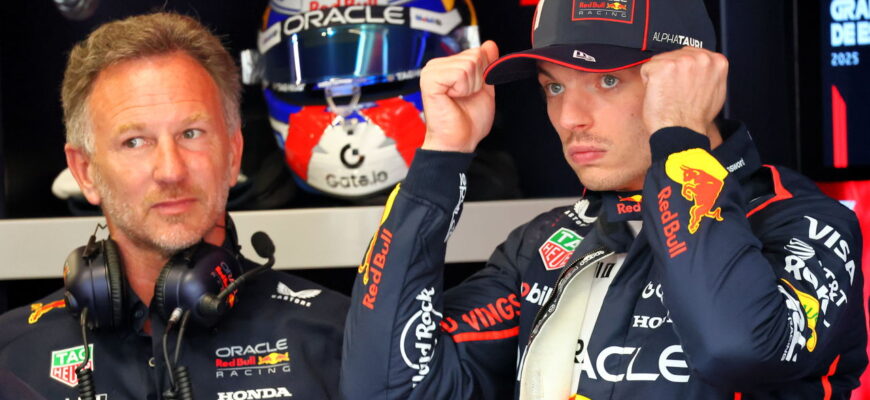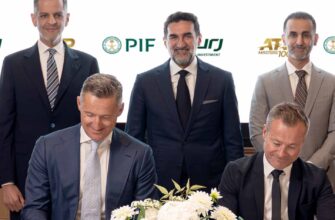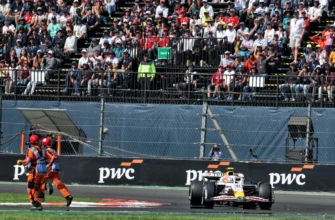According to Red Bull team principal Christian Horner, swifter decisions from the Formula 1 race director during events would help teams avoid anticipating the stewards` rulings, especially after the chaotic conclusion of the Spanish Grand Prix involving Max Verstappen.
The controversial crash between Verstappen and George Russell on lap 64 – for which Verstappen later admitted fault and said it `shouldn`t have happened` – took place on the very lap Red Bull instructed him to let the Mercedes driver pass.
This instruction came three laps earlier during a chaotic race restart following a late Safety Car period, when Verstappen went off track and remained ahead of Russell after their wheels clashed as the British driver tried to overtake at Turn One.
Race Control had noted the initial incident for investigation. Expecting a time penalty for Verstappen, Red Bull quickly ordered him to return the position – a directive the already-annoyed Dutch driver questioned over the radio. Shortly after, he collided with Russell`s Mercedes on lap 64, resulting in a 10-second penalty for Verstappen.
However, official documents released by the FIA after the race revealed that the stewards would not have penalised Verstappen for the initial Turn One incident.
The stewards determined that Russell was responsible for the contact, having `momentarily lost control of the car` and pushing the Red Bull off the circuit, thus requiring no further action.
Speaking later on Sunday, Horner clarified why they had instructed Verstappen to yield the position to Russell before the stewards` official decision was known.
“With the current regulations, it largely comes down to the position of the front axle,” the Red Bull team principal told reporters, referring to the updated F1 Driving Standards Guidelines.
“Drivers are aware of the rules and compete within them,” he said. “The question is whether George had control of his car then, and if he would have successfully navigated the corner?”
“We`ve seen penalties issued multiple times this season. Incidents are noted, sent to the stewards, and you anticipate a penalty. That`s why we decided, `Okay, we need to give this position back.`”
When asked if, in retrospect, instructing Verstappen to cede the place was a mistake, Horner replied, “Yes, but this is where it would be helpful for the race director, acting as the referee, to either signal `play on` or instruct the position to be returned.”
“It`s very difficult for the team to make that subjective decision in real-time because you`re basing it on past precedents, analyzing the situation, and attempting to predict the stewards` and race director`s thought process.”
“Therefore, I believe it would be beneficial for teams if the race director made that call directly – either `give the position back` or `you`ll receive a penalty` – instead of us having to second-guess the stewards` ultimate decision.”
Horner Advocates for Enhanced Communication with Race Control
Since the 2022 season, communication between F1 teams` pit walls and the race director has been limited to sporting directors. This change followed the 2021 season, where direct radio interventions from team principals like Horner and Toto Wolff (Mercedes) during the intense title battle between Verstappen and Lewis Hamilton became increasingly frequent and controversial.
When asked if teams could still contact the current race director, Rui Marques, Horner responded, “Yes, but you don`t get any feedback. You can ask, but you receive no reply.”
He elaborated, “We used to get some guidance, but now the decision for the team is highly subjective.”
“We reviewed all the slow-motion footage, and it was genuinely 50-50,” he stated. “The debate was whether George had control of the car and if he could have completed the corner. It appeared he could have.”
“Consequently, you make the decision to say, `Look, we have to give this position back.`”
Asked if he would raise this issue with Marques, Horner commented, “I believe this is a matter that should be discussed within the SAC [Sporting Advisory Committee].”






